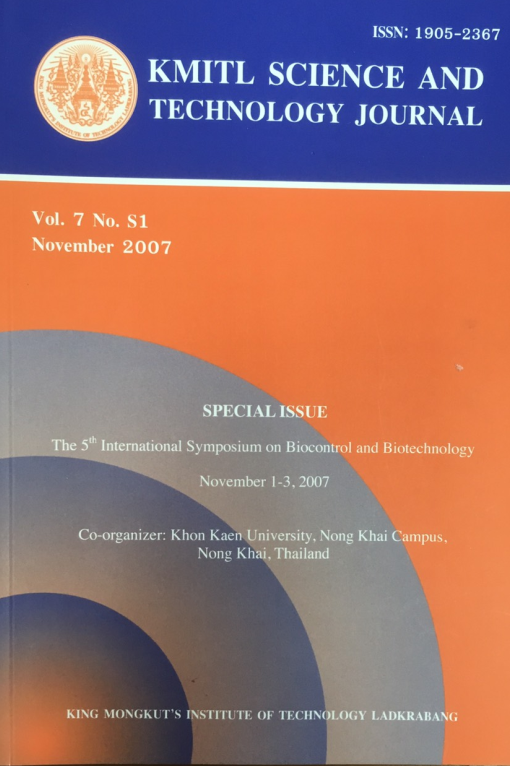Jerusalem artichoke (Helianthus tuberosus L.) is one of the most suitable materials for ethanol production as it contains nearly 20% of carbohydrates, 70-90% of which is inulin. In the present study, the batch ethanol fermentation of Jerusalem artichoke juices by the bacterium Zymomonas mobilis TISTR548 was investigated. Acid and enzymatic hydrolysis of inulin in Jerusalem artichoke juices were compared and the results show that acid hydrolysis at 80oC for 40 min using concentrated sulfuric acid gave the maximum reducing sugars content as well as ethanol yield (0.42 g g-1 utilized sugars) and ethanol productivity (0.65 g l-1 h-1) with 83.19% of the theoretical ethanol yield. Effect of initial pH of ethanol production medium and the inoculum size of Z. mobilis on ethanol production of acid hydrolyzed Jerusalem artichoke juices was determined. The results reveal that initial pH of 5.0 and 10% inoculum size exhibited the highest ethanol yield (0.47 g g-1 utilized sugars) and ethanol productivity (1.33 g l-1 h-1) with 92.75% of the theoretical ethanol yield, as compared to other conditions tested.
Keywords: Jerusalem artichoke, ethanol fermentation, inulin, Zymomonas mobilis, renewable energy
Corresponding author: E-mail: portha@kku.ac.th
Onsoy, T. ., Thanonkeo*, P. ., Thanonkeo, S. ., & Yamada, M. . (2007). ETHANOL PRODUCTION FROM JERUSALEM ARTICHOKE BY ZYMOMONAS MOBILIS IN BATCH FERMENTATION. Current Applied Science and Technology, 55-60.

https://cast.kmitl.ac.th/articles/86808